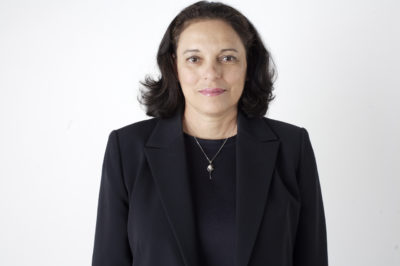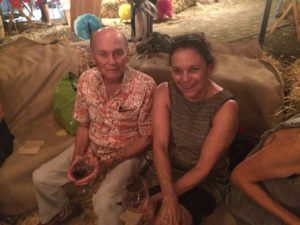
Female Startup Executive and Biotech Leader Brings HerStory to Toragen Biotechnologies
February 26, 2021
Focused on repurposing antiviral drugs and developing novel immunotherapies to treat viral-associated cancers, Toragen Biotechnologies is at the forefront of novel therapeutics, with CFO Anita Busquets and UC San Diego’s Andrew Sharabi at the helm.
Every year more than 600,000 new cases of Head and Neck Squamous Cell Carcinoma (HNSCC) are diagnosed worldwide, ranking 5th in incidence. Main risk factors include tobacco and alcohol use, and human papillomavirus (HPV) infection. Despite advances in therapy over the decade, there remains significant morbidity and mortality from this disease and oncogenic viruses.
In celebration of UC San Diego’s HerStory Month, we had the pleasure of connecting with Anita Busquets, CFO, a highly experienced startup executive with a passion for bringing Toragen innovation to market in developing effective new treatment options for patients with HNSCC.
What has been your experience with UC San Diego and its diverse entrepreneurial culture?
AB: I have a small consulting company that helps scientists transfer their academic findings/inventions into viable biotechnology companies. Doing that work, I have come across a multitude of potential founders of companies from many academic and research institutions, including my first UC San Diego company, Salmedix, which an experienced team partnered with Professor Emeritus of Medicine, Dennis Carson, at the UC San Diego Moores Cancer Center. Toragen has licensed technology from Andrew Sharabi’s lab, Director of the Moores Cancer Center Radiation Medicine Core Facility and Toragen Founder.
UC San Diego is one of the most diverse organizations I have worked with - hiring people of many races, nationalities and genders and encouraging commercialization of inventions by their diverse faculty, student body and staff. I recently participated in the Office of Innovation and Commercialization’s Investment Prep Program and was pleased to see that the startup companies involved were led by a diverse group of individuals; they were women and men of Asian, Hispanic, Eastern European, Middle Eastern and Caucasian lineages. All very entrepreneurial.
What excites you about your work?
 AB: Seeing and learning about ideas that could change the world and helping to make that happen. I really love working with smart people. I get excited about what we are doing. I like figuring out how it will be beneficial to develop drugs into viable therapies, working with smart people along the way to translate technology to market.
AB: Seeing and learning about ideas that could change the world and helping to make that happen. I really love working with smart people. I get excited about what we are doing. I like figuring out how it will be beneficial to develop drugs into viable therapies, working with smart people along the way to translate technology to market.
"I get excited about what we are doing. I like figuring out how it will be beneficial to develop drugs into viable therapies, working with smart people along the way to translate technology to market."
My father died of cancer last year, but I’ve always been interested in cancer research. Years ago when I was a dietician, I saw the stark reality on medical oncology floors. With a bachelor’s in biochemistry and a master’s in business, it’s been wonderful to combine science with my business background.
Herstory Month celebrates the many contributions of women in history, culture and society. As you reflect, what ways would you like to create and transform the entrepreneurial space for women?
AB: We need to see and train more women venture capitalists. We need to have venture capital companies in tech and biosciences that help other organizations be more inclusive. I want to see more women on boards. Athena, which started at UC San Diego, is a great program to train women to become board members. This year, SB 826 was passed and requires that by the end of 2021, California-based companies must install at least two female directors on five-member boards, and at least three female directors on boards with six or more members.
In December 2020, Nasdaq issued its own diversity mandate that will require listed companies to have at least two diverse board members, including one person who self-identifies as female and one person who self-identifies as an underrepresented minority.
"Getting women on corporate board member positions and access to venture capital investors is key to getting more women companies funded."
Getting women on corporate board member positions and access to venture capital investors is key to getting more women companies funded. I think it's harder for women to raise money. I have found that to be the case. There are not many funds focused on women and if they are, they are not scientifically oriented typically.
Describe a typical day in Startupland. What does your day look like?
 AB: I am up early, check my email over coffee. These days, I am on calls or Zoom "dialing for dollars", creating company stories that can be told through slide decks, sending out teaser slide decks to get meetings with potential investors, talking to and meeting with potential investors, meeting with founders, presenting the companies, working through budgets, strategizing on company stories, determining milestones to be met and making sure they are met, learning the technology to my best abilities so that I can describe it, asking questions, and directing development.
AB: I am up early, check my email over coffee. These days, I am on calls or Zoom "dialing for dollars", creating company stories that can be told through slide decks, sending out teaser slide decks to get meetings with potential investors, talking to and meeting with potential investors, meeting with founders, presenting the companies, working through budgets, strategizing on company stories, determining milestones to be met and making sure they are met, learning the technology to my best abilities so that I can describe it, asking questions, and directing development.
How do you define innovation in the 21st Century?
AB: I define it as something that makes the leap to change the status quo. It can be as simple as an important improvement or something brand new, never seen or described before. For example, in drug development, one can innovate a way to deliver a current drug better, or repurpose a drug in a way to solve a new and different disease problem, make a drug less toxic, or invent something completely new to solve an unmet need.
What role have mentors played in your success/journey?
AB: Everyone I meet can be a mentor. A mentor to me is someone that I can learn from and I come across them every day. Sometimes it's one short meeting and that person helps me see something in a new way. Other times it can be a long-term relationship with someone who over the years serves as a sounding board for ideas, concerns, direction, and encouragement. I have been fortunate to have both in my life and career.
What are some of the biggest challenges you faced in the startup process? How were you able to overcome them?
 AB: First, there are always the scientific/technical issues - making sure you are as ready with your plan, your story as you can be. Answering the technical questions that you will be asked beforehand as you look for financing. Having data! Finding financing is an early challenge - this means having the right team in place that can deliver on the promises made - the milestones set. Telling your story simply and understandably.
AB: First, there are always the scientific/technical issues - making sure you are as ready with your plan, your story as you can be. Answering the technical questions that you will be asked beforehand as you look for financing. Having data! Finding financing is an early challenge - this means having the right team in place that can deliver on the promises made - the milestones set. Telling your story simply and understandably.
Building your resiliency through self-care, whatever that means to you, to meet the roadblocks you will encounter - that will help overcome what comes your way.
"Building your resiliency through self-care, whatever that means to you, to meet the roadblocks you will encounter – that will help overcome what comes your way."
What advice would you give to a UC San Diego student thinking about starting a company?
AB: Understand it is not easy. You cannot do it alone. Bring others in who can help you succeed. Share in the wealth. And be sure to take care of yourself. Don't take shortcuts. Never give up on your integrity. Most of us are brought up that we need to do everything ourselves. Building your network to help you get your company off the ground is critical.
While not every company I've helped start has succeeded, I’ve learned that you really have to have investors interested in the long run to support you. It is so important. It's so easy to not succeed even if you have a great idea, you need to have a pipeline. Go for it, keep trying and find different ways to get funding!
To learn more about this life-saving technology, visit toragenbiotech.com or email inquiries@toragenbiotech.com